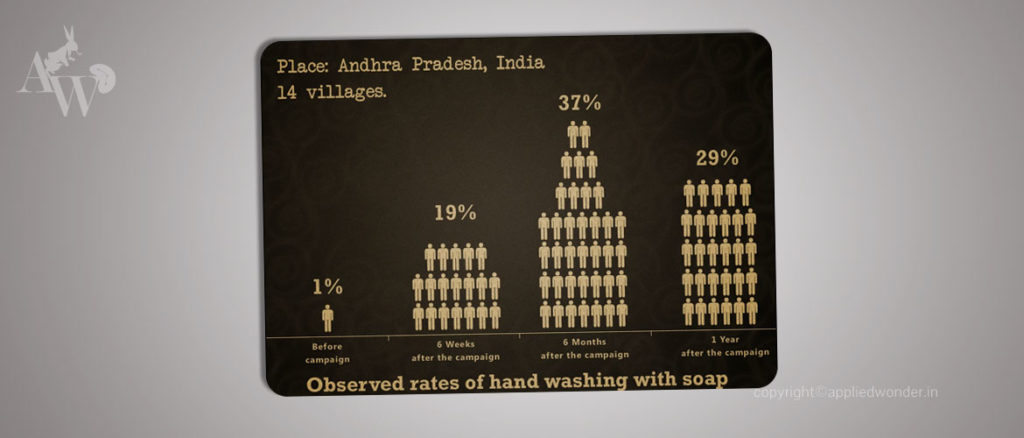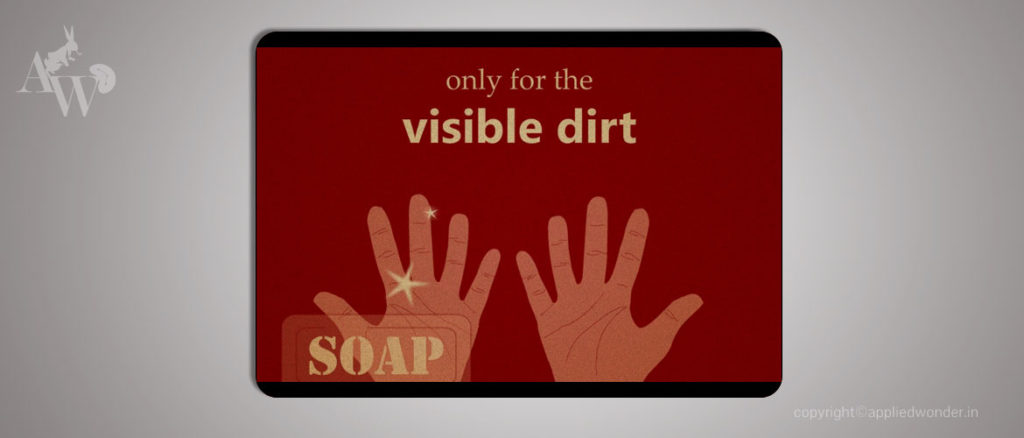London School of Hygiene & Tropical Medicine - SuperAmma
Background
Diarrhoea is a major cause of infant mortality in the world. It can be brought down by 47% if people simply washed their hands with soap before eating and after going to the toilet. To make someone buy soap is one thing, to make them wash their hands is another altogether. Behaviour change is a complex and tough task. The LSHTM team have a framework based on evolutionary biology to help practitioners create the required behaviour change.
Challenge
To prove the key premise of the BCD framework they threw us a unique challenge. They asked us to design a creative campaign that was based on purely emotive motivators and exclude rational arguments altogether. Infact they asked us not to use the word diaorrhea at all through the campaign! This would be rolled out through two promoters in 7 villages near Palamner, Andhra Pradesh at a scalable, economic cost per contact. Its efficacy would be meticulously measured in comparison with 7 control group villages.
Solution
We worked together with the scientists from LSHTM to convert their understanding of motivations for behavioural change such as – nurture, status, social acceptance, disgust, to a communication that worked on the ground. The central creative idea ‘SuperAmma’ used the nurture motive and told the story a normal village mother through the eyes of her little son. It places the spotlight on the saga of the everyday mother under the gentle of light of a child’s wonder. The narrative knits handwashing with soap into the journey of the boy’s growth and success and his mother’s influence in this story.
Outcome
HWWS went up from 1-3% to 29% at the end of one year with research and measurement showing a strong link between the campaign and the increase in HWWS. Many research papers have come out of this case and it was covered in the Lancet. It has gained global attention. The case became a powerful exemplar of the BCD premise that behavior change campaigns are likely to be more effective riding on emotional motivators rather than rational ones that target the executive brain through information.
Testimonial
Dr Valerie A Curtis – Director of the Hygiene Centre ,*Erstwhile Centre Of Gravity Creative






